We have already learned a great deal about the city the West used to know as "Canton". It now has over 10 Million people and is one of China's most prosperous cities. There is a youthful energy to the city despite its industiral facade. Many young college grads come from nearby provinces to find work.
Everything about Guangzhou is BIG. The new airport will be the biggest in China when completed next year. The biggest TV tower in Asia is currently under construction. The city sprawls for miles and has surprisingly wide and well laid out streets. Everywhere you look, huge buildings are in various stages of construction.
Here is some other info from the web:
Overview: Always a center of trade to foreigners, Guangzhou was established during the Qin Dynasty (221-206 BC). By the 200 AD, Indians and Romans were coming to Guangzhou and in the next five-hundred years, trade grew with many neighbors far and near from the Middle East and Southeast Asia.
Europe Comes Knocking: The Portuguese were the first Europeans to arrive buying Guangdong’s silk and porcelain and in 1557 Macau was established as their base of operations in the area. After several attempts, the British also gained a foothold into Guangzhou and in 1685, China’s Imperial Qinggovernment gave in to the pesky foreigners seeking its wares and opened Guangzhou to the West. But trade was restricted to Guangzhou and the foreigners restricted to Shamian Island.
Enter Opium: Annoyed by the trade imbalance, the British gained the upper hand over the Qing Dynasty (1644-1911) by dumping opium on Guangzhou. The Chinese generated quite a habit for the stuff and by the nineteenth century, trade was heavily weighted against the Chinese. The British were feeding the Chinese addiction with cheap Indian opium and ferrying away silk, porcelain and tea.
First Opium War and the Treaty of Nanking: A very large thorn in the Qing’s paw, the imperial commissioner was ordered to eradicate the opium trade and in 1839, Chinese forces seized and destroyed 20,000 chests of the drug. The British didn’t take this very well and soon the First Opium War was fought and won by Western forces. The 1842 Treaty of Nanking ceded Hong Kong Island to the British. It was during these tumultuous times that thousands of Cantonese left home to seek their fortunes in the US, Canada, Southeast Asia, Australia and even South Africa.
Dr. Sun: In the twentieth century, Guangzhou was the seat of the Chinese Nationalist Party founded by Dr. Sun Yatsen. Dr. Sun, the first president of the Republic of China after the fall of the Qing Dynasty, was from a small village outside Guangzhou.
Guangzhou Today: Guangzhou today is struggling to overcome its image as Hong Kong’s little sister. An economic powerhouse in southern China, Guangzhou enjoys relative wealth compared with many other parts of China and is a bustling and vibrant city.
skip to main |
skip to sidebar

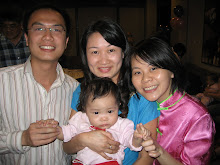
China Team Rock Stars





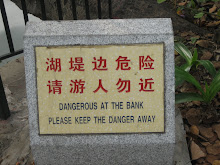
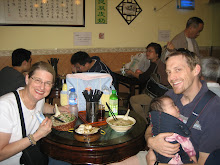
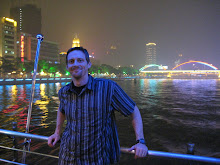



The mommies take a shot!
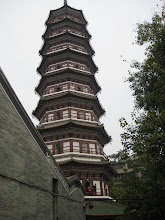
Naomi and I climbed all 9 stories...
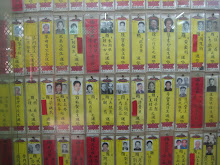
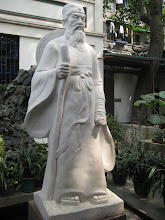
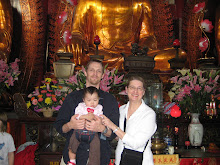
This was right after the blessing...
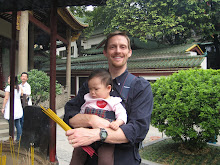

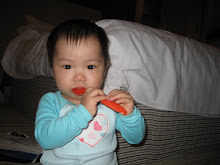

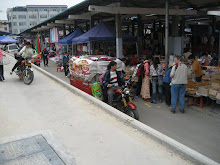

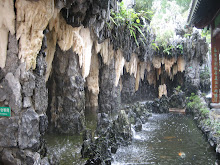

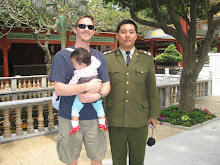

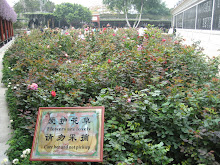
The sign says "Flowers are lovely. Care her and not pickup"
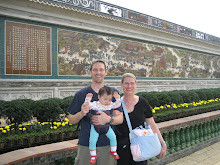
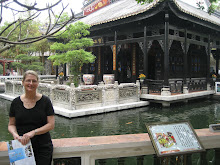


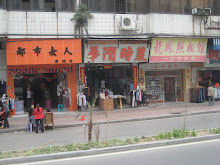

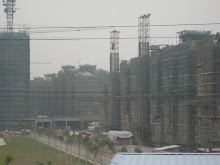
This was everywhere on the way to Guandong


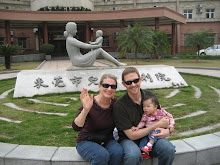
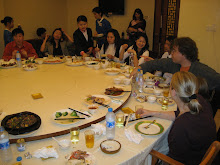
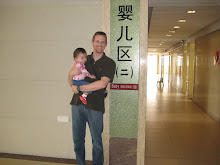
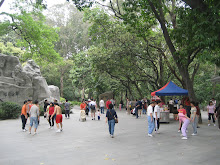

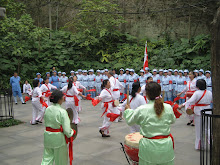
The women in blue sang later...

This park is a rare green refuge in the big city
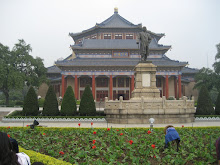


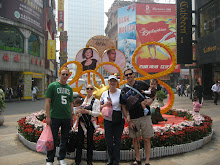

Her first New York Times - Gma June would be proud

Marcio, Sara and Duda




Daddy and Naomi were tuckered out!
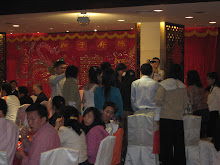
The bride is standing for a toast

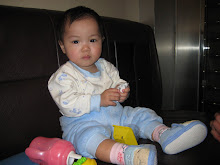

She's small but a big eater!


She loves to throw her toys all over
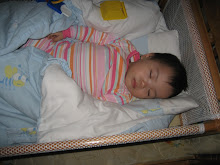
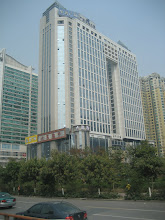
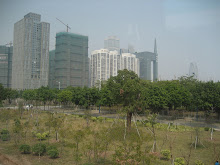
Huge Buildings Under Construction

Biggest Mall in Asia
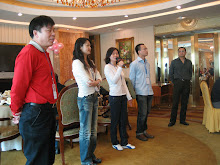
The China Team
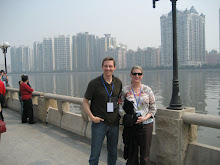
The Pearl River - 4th largest in China

Crazy Crab Guy
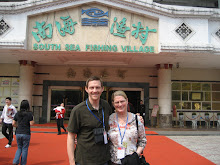
Dimsum - Day 1

Our view while landing in Guangzhou

Her head is shaved to avoid lice...

She is 12 months old here
Our family is growing quickly in more ways than one. Tune in for our crazy adventures...
Good party food...

Phillip, Sara and Grace

China Team Rock Stars
Honorary Mom

Hanging with the big kids

Going punk!

Getting down and dirty

Playing at the park

But who is the danger?

Grub time with locals

Cruising the Pearl River

All the daddies and the China team

Grandma can party!

Reunion party

The mommies take a shot!
The main temple

Naomi and I climbed all 9 stories...
Ancestral worship

Mystery man

The Main Temple

This was right after the blessing...
Lighting incense for good luck

Getting into trouble!

Teething on a spoon

Lunch at the China Hotel

Market hustle

Market spices and goodies

Cool stalactite

Lovely waterfall

Naomi playing diplomat

Catching goldfish at Baomo Garden

Rose Garden

The sign says "Flowers are lovely. Care her and not pickup"
Beautiful carving wall

Baomo sights

Chomp, Chomp

Ethan and buddy Michael

Small shops everywhere

On the way to Guandong

Massive Construction

This was everywhere on the way to Guandong
Big Market in Dongguan

Naomi's Main Caretaker

After the Orphanage Tour

Lunch in Dongguan

The hallway to Naomi's crib

Like Hacky Sack, But Not...

Our friends with the orange

Supporting the Troops

The women in blue sang later...
Statue of the Five Goats

This park is a rare green refuge in the big city
Sun Yat Sen Memorial Hall

Bath time!

Precious bundle

Beijing Road

Playing with Mimi

Her first New York Times - Gma June would be proud
New Friends

Marcio, Sara and Duda
A Little Samba

Waiting to sign adoption papers

Sleepy Stretch

Taking a nap

Daddy and Naomi were tuckered out!
Chinese Wedding Banquet

The bride is standing for a toast
Bruce, Kim and Anabelle

Naomi - Govt Office

First Bottle

She's small but a big eater!
Grandma fun on Gotcha Day

New Toys

She loves to throw her toys all over
End of Gotcha Day

Big Hotel

Huge Buildings Under Construction

Huge Buildings Under Construction
Biggest Mall in Asia

Biggest Mall in Asia
The China Team

The China Team
The Pearl River

The Pearl River - 4th largest in China
Crazy Crab Guy

Crazy Crab Guy
Dimsum - Day 1

Dimsum - Day 1
Sunrise - Guangzhou

Our view while landing in Guangzhou
Naomi - Orphanage 2

Her head is shaved to avoid lice...
Naomi - Orphanage

She is 12 months old here
Blog Archive
-
▼
2008
(18)
-
▼
March
(18)
- Visa, Farewell party and Homecoming
- Already making progress
- Red Tape
- Dr. Rosen Rosen?
- Reunion Party
- The Temple of the Six Banyan Trees
- Notes from the field
- Baomo Garden
- The Glamorous Life
- Homerun
- Dongguan Children's Welfare Institute
- Sightseeing & Big Trouble with Little Watches
- Passport Day
- She's Ours!
- "Gotcha Day"
- Guangzhou
- Day 1 - The Longest Day
- Setting up the Big Top
-
▼
March
(18)